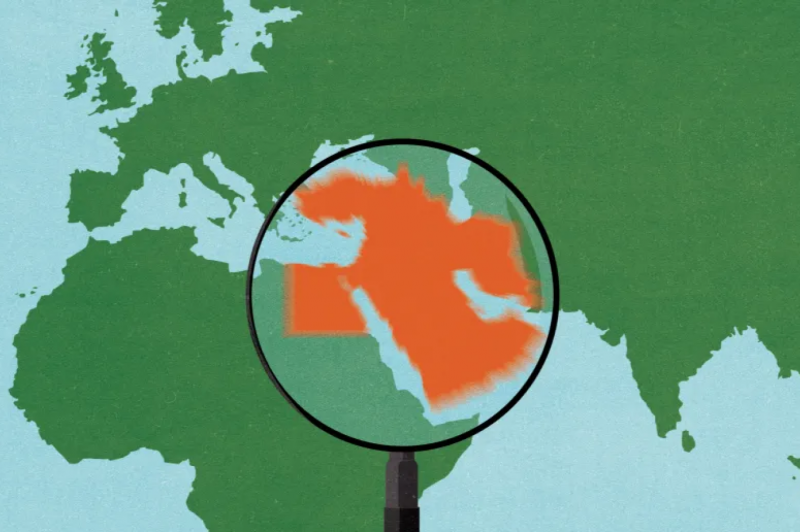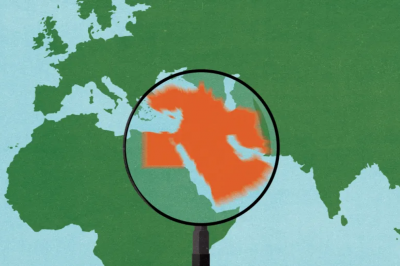Syrian President Bashar al-Assad's invitation to attend the Arab League summit in Saudi Arabia tomorrow, Friday, is part of a broader trend in the Middle East, where adversaries are taking steps to mend strained relations due to years of conflict and rivalry. The pace of this shift has accelerated since Iran and Saudi Arabia agreed to restore diplomatic relations in a deal brokered by China in March. Below is the trajectory of how these understandings are forming:
*New Movement*
Iran's nuclear program remains a source of tension, violence is escalating between Israelis and Palestinians, alongside a new conflict erupting in Sudan. This trend is viewed as a reflection of efforts to boost economic development and geopolitical transformations at a time when U.S. allies are questioning Washington's long-term commitment to the region, despite reassurances being offered. This comes as other powers, particularly China, seek to expand their influence. Will Nassar from the Johns Hopkins School of Advanced International Studies in Washington stated, "Arabs, Iranians, and Turks are trying to create a gray area where they can coexist, rather than a region that is only black and white." He added that some U.S. allies have concluded that a highly polarized Middle East does not serve their interests, explaining that "there is a movement in the region pushing everyone toward the middle."
*Saudi Arabia and Iran*
Saudi Arabia and Iran agreed to restore relations in a deal mediated by China. This agreement may defuse tensions and conflicts, including the war in Yemen. The deal highlights Saudi Arabia's desire for security at a time when Crown Prince Mohammed bin Salman focuses on expanding and diversifying the economy. Saudi Arabia has turned to China at a time when its alliance with the U.S. is becoming strained. While U.S. sanctions restrict Iran's economy, it seeks to undermine Western efforts to isolate it. China is a major trade partner for both Saudi Arabia and Iran.
*UAE and Iran*
Driven by its economic interests, which rely on its reputation as a safe haven for business, the UAE reached out to Tehran in 2019 and developed diplomatic relations with Iran in August. Iran appointed an ambassador to the UAE for the first time since 2016.
*Turkey, Saudi Arabia, Egypt, and UAE*
Relations between Turkey, Saudi Arabia, Egypt, and the UAE became strained following the uprisings of 2011, as Turkey supported Islamists who challenged the ruling regimes in Arab Spring countries. Turkey initiated a diplomatic campaign in 2021 that resulted in official visits and investment deals amid a severe crisis for the Turkish economy. In March, Saudi Arabia agreed to deposit five billion dollars in Turkey's central bank. Relations also improved between Egypt and Turkey, which opposed the military's ousting of President Mohamed Morsi, an ally of the Muslim Brotherhood, in 2013. In March, the Turkish Foreign Minister visited Cairo for the first time in a decade. The improvement in relations is evident in Libya, where Turkey supports the Tripoli government while Egypt and the UAE back factions based in the east. Diplomats say that warm relations have made it easier for the warring Libyan parties to commit to a ceasefire.
*Qatar, UAE, Egypt, and Saudi Arabia*
In 2017, Egypt, the UAE, Bahrain, and Saudi Arabia severed relations with Qatar, accusing it of supporting terrorism, generally pointing to Islamic movements, an accusation denied by Doha. In 2021, Saudi Arabia took the initiative to rebuild relations, announcing an end to the Qatar boycott. Riyadh and Cairo appointed ambassadors, while Abu Dhabi and Manama have not yet taken this step. All these countries, except Bahrain, have restored travel and trade links.
*Israel, UAE, Bahrain, Morocco, and Sudan*
Israel's relations with the Arab world significantly improved in 2020, thanks to what was termed the "Abraham Accords," brokered by the United States. The UAE and Bahrain were the first to normalize relations amid concerns about Iran, followed by Morocco. In February, Sudan and Israel announced an agreement to normalize relations. However, the fate of this agreement, which was set to be signed after the transfer of power from the military to the civilian government, is uncertain due to the conflict between the military and Rapid Support Forces. Israel hopes to normalize its relations with Saudi Arabia as well. While Riyadh has implicitly supported the Abraham Accords by allowing Israeli airlines to fly in its airspace, it states that any normalization will require progress in the long-stalled Palestinian quest for statehood. Turkey and Israel also resumed relations last year after a decade of tension.
*The Syrian Government and Arab Countries and Turkey*
Arab countries, which previously supported armed opponents against Assad, have resumed relations with Damascus despite U.S. objections. The UAE took the lead with its Foreign Minister visiting Damascus in 2021. The process accelerated after the devastating earthquake that struck Syria in February, which spurred a flow of Arab support, and the pace increased after the agreement restoring Saudi-Iranian relations. Following the earthquake, the foreign ministers of Jordan and Egypt visited Damascus for the first time since the war began. The Saudi Foreign Minister visited Damascus in April. Analysts say the motives behind this rapprochement include attempts to counter Iranian influence, which helped Assad regain most of Syria. Arab countries want Assad to prevent the production and export of narcotics from Syria throughout the region. Turkey, which has long supported armed Syrian opponents, has also resumed contact with Assad with encouragement from Russia. Assad has rejected any meeting with Erdoğan unless Turkish forces withdraw from northern Syria.




